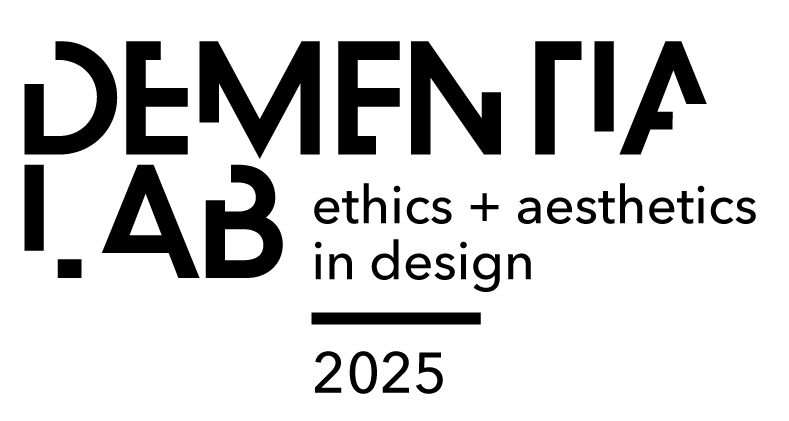Dementia Lab 2025 theme:
ethics + aesthetics in design
The theme of the Dementia Lab Conference 2025 will look at ethics and aesthetics. Although often not recognised as paramount topics, both are central when designing for and together with people with dementia, as well as when selecting and using any kind of products in dementia care.
In the work with and for people with dementia, we often are confronted with ethical issues and concerns. Not only because we are dealing with people who might be vulnerable, and whose diagnosis is evolving, but also because this leads to differences in the experience of realities and beliefs, which we might be difficult to understand and respond to. This is, sometimes, perceived as a constraint to the creativity and aesthetic freedom of the designer. On the other hand, aesthetics is occasionally regarded as not relevant or worthy for people with dementia. However, being a provider of aesthetic experiences, design can contribute to turning the world that surrounds us more pleasant, comforting and attractive, thus potentially more inviting, stimulating and inclusive. By ‘aesthetic’, we not only refer to beauty but to an embodied engagement with the world, through the senses, which becomes even more crucial to acknowledge and incentivize as dementia progresses. Therefore, aesthetics might also support more ethical care practices and a means to challenge stigma.
The next edition of Dementia Lab invites you to reflect and engage in discussions around ethics and aesthetics, and the tensions and associations between them.
We encourage submissions that reflect on the conference theme, across three domains:
1
designing with people with dementia
What ethical challenges emerge from the involvement of people with dementia and their carers in participatory design processes and how to overcome them?
What is the role of aesthetics in dignifying and supporting the engagement of people with dementia and their carers in a design process?
How can approaches to design help to address some of the power imbalances that might exist in research processes?
How can we ensure that existing ethical processes in research do not stifle the voices of people living with dementia?
2
designing for people with dementia
What role can aesthetics have in making products, services, tools, and environments more relational and more human, thus less stigmatising for people with dementia? Can design challenge preconceptions and stereotypes of dementia?
How can design support in the creation of more equitable services and environments for people living with dementia?
What ethical values should be behind the conception of products, services, tools, and environments for people with dementia?
3
including design in dementia care
How is design included in dementia care practices?
How are objects, environments, tools, services being used to support people with dementia? What ethical challenges do these raise?
What is the importance of aesthetics and design in dementia care practices?

